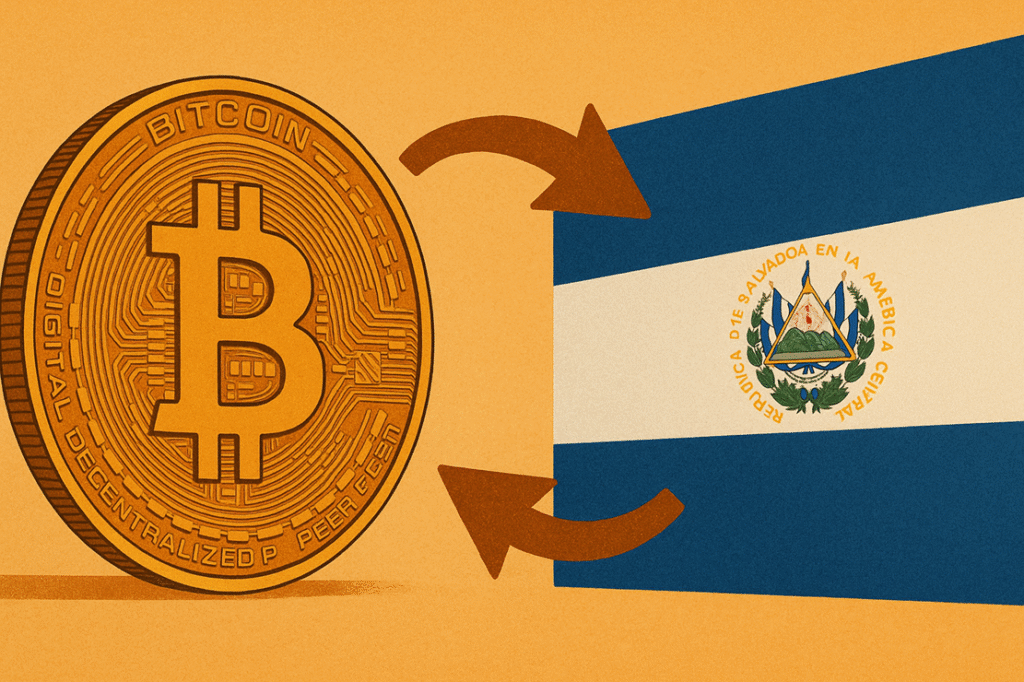In recent years, El Salvador has cast a global spotlight on its audacious Bitcoin experiment, a move that has sparked widespread debate and scrutiny. While the Central American nation has publicized its Bitcoin acquisitions, the International Monetary Fund (IMF) has raised questions about the actual status of these holdings. This intricate narrative around El Salvador’s Bitcoin management highlights the ongoing tug-of-war between governmental fiscal strategies and international financial oversight.
Analyzing El Salvador’s Bitcoin Strategy: IMF’s Perspective
Understanding the Bitcoin Shuffle
Julie Kozack, the IMF’s Communications Director, recently clarified that El Salvador’s reported increase in its Strategic Bitcoin Reserve Fund (SBRF) might not be what it seems. This revelation, shared during a press briefing, addressed media speculation regarding El Salvador’s Bitcoin reserves. Kozack stated that although there appear to be movements within the government-owned digital wallets, these transactions do not alter the nation’s overall Bitcoin holding, which aligns with the country’s fiscal commitments.
IMF’s Financial Watch
Recently, the IMF concluded its 2025 Article IV consultation of El Salvador and conducted the first review of its 40-month Extended Fund Facility (EFF). This review allowed the release of a $118 million tranche, contributing to a total disbursement of $231 million under a $1.4 billion arrangement. The EFF parameters necessitate that El Salvador maintains a stable net Bitcoin exposure while ensuring fiscal stability.
Unraveling Government Announcements
In the wake of the IMF’s statement, El Salvador’s Bitcoin Office boldly announced additional Bitcoin purchases. However, the IMF has noted these announcements could misrepresent the actual fiscal activities involving Bitcoin. The agency explained that inflows into the SBRF are typically balanced by equivalent outflows from other government wallets, essentially resulting in no net increase. This approach aims to mitigate risks associated with Bitcoin’s known volatility and its impact on the country’s financial standing.
El Salvador’s Fiscal Strategy and the Cryptocurrency Frontier
El Salvador’s engagement with Bitcoin is entwined with broader fiscal goals defined under the EFF. By limiting net cryptocurrency transactions, the nation aims to prevent excessive volatility in its public balance sheet, which is a critical concern given the Bitcoin exposure that equates to about 2% of its GDP. This cautious handling seeks to align fiscal practices with sustainable debt management paths outlined by the IMF.
FAQs on El Salvador’s Bitcoin Management
What is the significance of El Salvador’s Bitcoin purchases?
El Salvador’s Bitcoin acquisitions symbolize a pioneering embrace of cryptocurrency at a sovereign level, aiming to fuel financial inclusion and economic modernization. However, these moves are closely watched by international bodies for potential risks and compliance with fiscal guidelines.
How does the IMF view El Salvador’s Bitcoin holdings?
The IMF maintains that while El Salvador’s Bitcoin transactions reflect movements between state-controlled wallets, the net holdings remain unchanged. The agency emphasizes adherence to the EFF’s objectives, which include stabilized Bitcoin exposure to safeguard economic stability.
What fiscal objectives does El Salvador pursue in its Bitcoin strategy?
El Salvador’s strategy is twofold: leveraging Bitcoin for economic innovation while adhering to IMF recommendations to limit net crypto exposure. This balance aims to reduce fiscal volatility and align with responsible debt management.
In the dynamic world of cryptocurrency, El Salvador remains an intriguing case study of innovation meeting fiscal prudence. As debates continue, understanding the nuanced financial maneuvers within such a framework is crucial for stakeholders and global observers alike.

